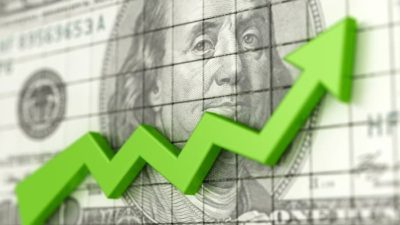This article was originally published on Fool.com. All figures quoted in US dollars unless otherwise stated.
I'm not going to bury the lede. Another stock market crash is going to happen.
I know this not because stocks are overvalued (although they probably are) or because COVID cases have continued spiking, or because the federal government seems unlikely to compromise on more financial relief, or for one of almost a dozen other reasons.
I know it because stock market crashes always come. In fact, just in my lifetime alone, I've lived through:
- The crash of 1987, when the S&P 500 lost more than 30% of its value in just under 40 days
- The bursting of the DotCom bubble, when the S&P fell more than 44.7% over two years in the early 2000s
- The 2008 financial crisis, when the market shed over 50% of its value in under a year and a half
- The coronavirus crash
And I'm only in my late 30s.
But despite the fact I'm 100% confident the market is going to crash again, I'm not worried about my investments or planning to reduce the amount I'm putting into the market. And, if you've done the right things, you shouldn't be either. Here's why.
You can't predict a market crash, but you can be ready for one
Although no one ever knows when a market crash is going to happen, everyone should know one could occur any day.
In fact, crashes often come as a result of burst bubbles, so everything may look like it's going really well with the stock market (or real estate) -- before all of a sudden... it isn't.
Since you can't predict when a crash will happen, you should be prepared for one at all times. That doesn't mean keeping your money out of the market, as you need to invest in stocks to build wealth. Instead, it means:
- Not investing money you'll need in the near term. Some recoveries are very quick (including the most recent one). Others can take years. If you have money invested that you'll need within the next two to five years, you may not have time to wait for the market to rebound and you could be forced to sell at a loss. You don't want to do that.
- Not trying to time the market. Since knowing what's going to happen is impossible, don't try to buy at rock bottom or sell at the peak. Instead, invest for the long term and consider using dollar-cost averaging to acquire your positions. That means investing the same amount in similar assets at regular intervals, so chances are good you'll buy some shares at a high price and others at a low one, and things will even out.
- Paying attention to your risk exposure. Over-investing in equities is a risky endeavor, as it ups the chances you'll suffer outsized losses during a market crash. At the same time, not investing enough in stocks is also risky because you'll miss out on the chance to earn reasonable returns. Take the time to think about what balance is right for you.
- Not chasing short-term gains. If you want to be prepared for a market crash at all times, your portfolio can't include any investments you'd be unhappy holding for years -- just in case you happen to own them when a crash happens and you need to keep them until the recovery to avoid locking in losses.
- Assessing what kind of investor you are. It's hard to consistently beat the stock market -- especially during times of turbulence. While it was easy for most people to make money during the 2010s when market volatility was low, these are much more uncertain times. If you're a nervous investor likely to react in fear or you don't have a sound investment thesis, investing in index funds may be a better bet than picking individual stocks. At no time would an investment held consistently in an S&P index fund have been a losing investment if you owned it for at least 20 years -- so you're taking much less risk in case of a crash if you opt for one, since it's all but certain your investment will recover any losses over time.
If you take these five steps, you can join me in knowing that you're 100% ready for a market crash whether it happens today, tomorrow, or in five years' time.
This article was originally published on Fool.com. All figures quoted in US dollars unless otherwise stated.









